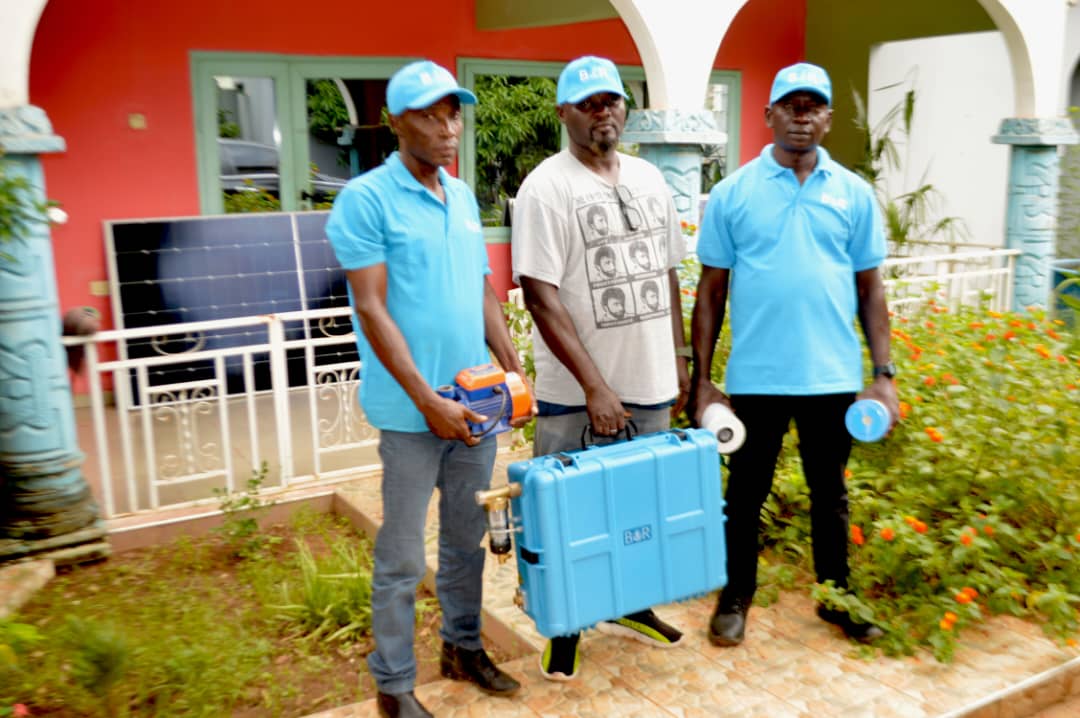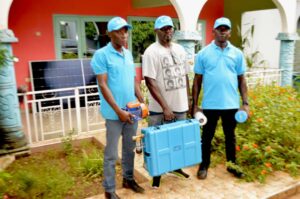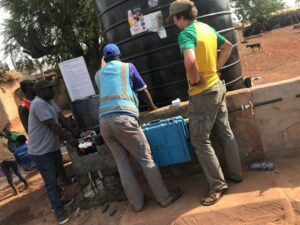
As Ghana battles a growing water crisis caused by pollution, illegal mining, and poor sanitation, a new innovation is quietly rewriting the narrative—not just by providing safe and clean drinking water but also creating jobs, transforming communities and helping schools
Element15’s BAR water purification system, is gaining recognition for its dual impact: improving public health while opening up new opportunities for employment in the Northern Region of Ghana
From Clean Water to Clean Livelihoods
While the system’s primary aim is to make water safe for consumption, its implementation is also generating meaningful employment. Youth in the Northern region are trained and engaged in the installation, maintenance, and monitoring of the BAR systems—giving them not only technical skills but also a source of stable employment and income.
In Northern Ghana, where access to clean water remains a challenge to some communities, the system is already benefiting local communities, schools and households. Community members have been employed to oversee system operations, act as liaisons with the local partner company, and manage logistics—a ripple effect that’s bringing financial stability to families.
“This initiative is not just about water,” said the Public Relations Director “It’s about dignity. It’s about jobs. It’s about giving our young people a reason to stay and work in their communities.”

A Scalable Model for Community Empowerment
Unlike traditional water treatment technologies, the BAR system is energy-free and easy to maintain. It works by attaching to boreholes or other water sources and filters out bacteria, viruses, and even heavy metals—some of which are introduced by illegal mining (galamsey).
But beyond the technology, what makes the system unique is its built-in potential for scale. Every new installation means new employment—technicians, community managers, and support staff—making the system not only a health solution but also an economic development tool.

Addressing Ghana’s Water Emergency with Local Solutions
Recent warnings from the Ghana Water Company Limited suggest the country could be forced to import water by 2030 if pollution continues at its current pace. As waterborne diseases like cholera and typhoid rise, the need for sustainable, community-driven solutions has never been more urgent.
The BAR system is proving to be just that. By tapping into local labor and focusing on decentralized deployment, the initiative aligns with national goals for job creation and environmental resilience.
What’s Next?
With its current success in the North, there are calls to expand the BAR system to other regions—both as a public health measure and a job creation strategy, The government of Ghana, Development partners, and policymakers are being urged to support the company to grow. So that it can extend its success story to more communities and Ghana at large.
In a country where clean water is becoming a luxury and youth unemployment remains high, the BAR system offers a rare win-win: a path to safe water and a chance at decent work.

